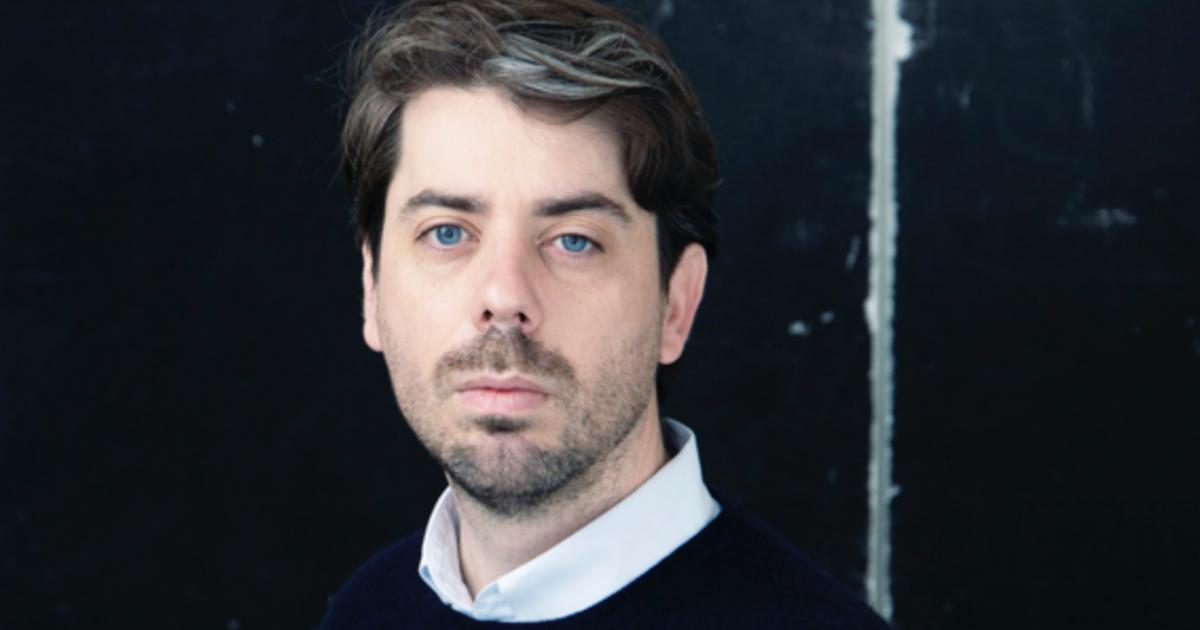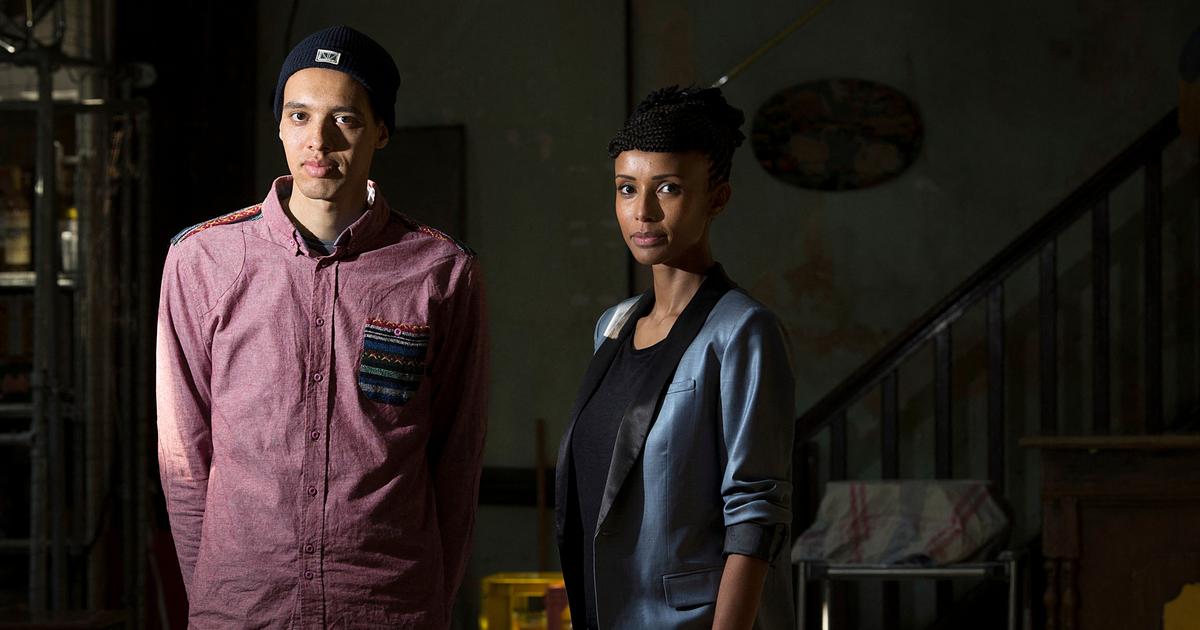In his new novel, Philippe Djian depicts a journalist struggling with several mysteriously linked cases, pressure from investors to sell his mother-in-law land belonging to her, and an unusual news story – a hiker who disappeared and was found.
Artfully relying on his taste for the ellipse as well as on what the Anglo-Saxons call an
unreliable narrator
(an unreliable narrator), with
Without counting (1),
he signs a sort of noir novel whose conventions to better lead us by the nose.
The writer and ex-lawyer Constance Debré is also interested in news items in the masterful
Offenses (2)
: abandoning the self-narrative at the heart of
Play Boy, Love Me Tender
and
Nom
, she tells us with chilling sobriety the fate of a "little one from the city" who cut the throat of an old lady in her building in order to reimburse a dealer who was threatening her family... Playing with multiple perspectives and a brief sentence , sharp and musical, it modernizes ancient tragedy to better question the foundations of a corrupt system, and to indict those who accuse and are perhaps as much, if not more, guilty than those they designate as such.
The opportunity to talk to two authors as concerned about the form of their writings as about their political vocation.
On video,
Saint Omer
by Alice Diop, excerpt
Madame Figaro
.
– Your two books are based on miscellaneous facts… What interested you in this initial material?
Constance Debre.
–
One of the reasons why I have always liked Philippe Djian's books and thrillers is that we find in this way of telling stories and in this dimension of existence and characters staged something of the Greek heroes.
Man advances in the world and goes through trials.
With this difference that it evolves in our time;
he gets up, scratches his ear, makes himself a coffee, wonders where he is with the woman he loves...
Philippe Djian. –
I worked as a rewriter at
Detective
for a year, a magazine for which news items were a veritable bible.
We recently published
Detective: A Century of News Items,
and it's amusing to see how many great writers, such as Joseph Kessel, explain that news items are great because they tell the story of life...
CD
–
It is, in fact, fascinating, and that is why I liked the job I had before, that of a lawyer.
What leads an individual to transgress the laws – that is to say the law but also the social, moral rules – and to commit an act that is never natural, never easy for whoever commits it, independently even of the question of repression?
PD
–
In
Without counting
, it's something that I return to: what I like about the character of the assassin is not that he kills but that he has no instinct for murder.
He doesn't like blood, he doesn't like evil, he has no particular taste for crime.
Simply, when he is bothered by an element, he gets rid of it because he cannot push it to the side;
it eliminates the problem.
Some will consider him a
serial killer
that it is absolutely necessary to lock up, others that he is not at all a madman and that he does not deserve to end up in the asylum... In any case, if certain authors seize on a news item to develop a thought or a theory, that is not my case.
Me, it amuses me.
I want to thank the person who walked into the bookstore and made the effort to buy my book, so I'm taking action - something just has to happen...
Where does your attachment to accessible writing come from?
PD
–
Indeed.
I made the choice of a simple, popular language, but where I can also integrate elements of readings that I liked and that come back to me, all this to see what style is possible today.
CD
–
I too use a very simple language.
I refuse to show off, to be erudite, to use imperfect subjunctive… I want to ask myself the question of style and beauty in the language that is ours in contemporary times.
You can't pretend to talk like in the 19th century.
It's about saying that the world we live in is beautiful with today's words, just as we wear today's clothes, and that we're not going to put on leotards or in a crinoline…
PD
–
We have to get rid of the sentences that have been put in our heads, of respecting the rules, the consistency of times, etc.
And stop thinking that it is better to write that the sky is not blue, but lapis lazuli or whatever...
CD
–
That's unbearable.
It's what's bourgeois in a certain French literature that I hate.
In this regard, American literature has cleaned us up, and there, I say thank you to Philippe Djian for his style, which has retained the American lesson and embodies a French modernity that has done us good.
In reality, I am convinced that progress and intelligence go through simplicity.
You can't pretend to talk like in the 19th century.
It's about saying that the world we live in is beautiful with today's words
Constance Debre
PD
–
Which doesn't mean it's easy – look at Dickens!
It's just that I'd rather address a million readers than ten thousand.
Writing books means that you belong to a society.
Writer, lawyer, mechanic, baker, we all have a role to play, something to do to live together, otherwise it's not worth it.
CD
–
Writing for five hundred educated people is probably easier than for a hundred thousand people, that is, everyone.
I believe in literature for everyone.
I have, for my part, the intimate conviction that the truth, we all know it.
The human experience is the same – love, pain… It is distributed and experienced differently, but we can all understand each other.
And literature is the bet that we have a common language.
That we can talk to each other across countries, backgrounds, times;
one can read Homer, as one can read Dickens or Dostoyevsky.
We writers are here to tell a different story, to say everything an article won't say...
Philippe Djian
You evoke those who tell stories, like the journalist in
Without counting
, and those who are never told, like the hero or rather the antihero of
Offenses
…
CD
–
The main character of
Offenses
has nothing to do with Jean- Claude Romand (hero of a famous news item and of
The Adversary
, a book by Emmanuel Carrère, editor's note).
Carrère also adopts an approach that is the opposite of mine: he seizes an extraordinary news item, and is interested precisely in its exceptional character, in what this story has of monstrousness, and will point out in relation to what he, himself, is monstrous.
On the contrary, I am attached to what
PD
–
I never wanted to take up a news item whose end we already knew.
Hence the temptation of the ellipse in my texts: I don't want to describe everything as a naturalist novelist would do, I don't want my books to end like a classic story.
I want to offer another way of seeing and therefore of feeling things.
In
Love is a perfect crime
, the adaptation of my novel
Incidences
by the Larrieu brothers, Canal+ insisted that in the end everything explodes, that the police arrive, that the girl be saved, which was not the case in the text.
For them, a story must start here and end there.
But precisely, there are various facts for that, specialized newspapers which tell the life as they see it, in a standardized way.
We writers are here to tell a different story, to say everything an article won't say...
The news item is therefore only a pretext?
PD
–
Yes, I chose that news item, but I could have taken another.
In fact, I attach so little importance to the story that I have been told without my realizing it the plot of one of my novels written five or ten years ago: I had simply forgotten it.
Because what interests me is the look.
Ten witnesses of the same events will deliver ten versions of what they observed.
If we all had to put on paper, say,
Romeo and Juliet
, everything would depend on the point of view, the perspective...
CD
–
The tragedy of our human condition is to be plunged into chaos.
Narratives allow us to find meaning in what we experience.
Books are narratives, the stories we tell ourselves in our inner monologue and those we tell others are too.
Art, the way of dressing or writing are forms that give meaning and allow us to escape from chaos.
PD
–
It's a bit like when you wake up and try to remember what you dreamed of.
Everything was blurry, messy, and then we gather the scattered elements, we compose, we put order in what was scattered to draw a story.
CD
–
That's why when I'm told that I'm moving from the first person and autofiction to the “
novel
” with
Offenses
, as if it were essential, I don't agree.
I don't see a major, profound difference.
I never told myself, I never talked about me or my life, I used the events of my life to make something of them.
In any case, it's about inventing a language that expresses a relationship to the world and makes the reader experience something.
PD
–
And that's what I liked about
Offenses
: the murder of an old lady by this young man is less important to me than the choral character of the text, its changes in points of view, the passage of "
I
to "
he
" and "
we
".
We are also responsible for this guy who is going to kill the old lady and for this justice system which is going to throw him in prison thinking that she is doing well, when the system is totally flawed.
Constance Debre
You also both share an interest in people and the refusal to reduce criminals to monsters...
CD
–
When I was a lawyer, I was very surprised to see people who weren't really on the far right telling me: “But how can you defend criminals?”
But the criminals are also us… Evil doesn't exist only in them.
PD
–
Having committed a crime is not enough to define a man.
CD
–
It's just an act.
And murder has never been totally forbidden in our societies: you can kill for your country, you can kill in case of self-defense… One of the intuitions that I have followed and that I have had for a long time is that this drive for violence, for murder, which no society has been able to get rid of, because it is part of us, is also that exercised by justice, in reality.
We indicate and designate what evil is, whereas it is always the same people who are driven to commit it, because of poverty, lack of means, absence of hope and prospects.
It is on the latter that justice and symbolic murder are exercised, and all this in the name of good, with the good conscience of rigor... The "
we
that I use, it's because we constitute a humanity, but with this consequence: precisely because we are humanity, we all bear guilt.
We are also responsible for this guy who is going to kill the old lady and for this justice system which is going to throw him in prison thinking that she is doing well, when the system is totally flawed.
We cannot say that all this does not concern us, that we have nothing to do with it.
DB
–
Everything combines to make us a herd of imbeciles who go in a direction that has been indicated to him as being the right one.
But when you ask a guy why he wouldn't take a $1,000 a month job, saying it would be good for him, he'll tell you that when he's watching TV and he sees a fridge that costs €1,000 with a villa behind and an embellished woman, what do you want him to do with €1,000 a month?
We are told everything to think about!
And this is where writers have a role to play, by showing that there is another way of looking at the world, that life does not necessarily and only look like what we say on the radio, on the television or in station novels… A writer cannot change the world, but he lives in it,
CD
–
Writing, that is to say proposing a form, is a way of telling readers not to be fooled by the narratives that are served to them on a daily basis, in newspapers, in politics or elsewhere...
So your literature has a political vocation?
PD
-
Of course.
I always keep in mind that the people who buy my books are people who vote, and that I mustn't do anything.
Read alsoThe Outreau affair,
Saint Omer
: why does justice on the screens fascinate so much
CD
–
Name me a great book that is not political?
It is always about the fight of an individual against society… In truth, literature contests power, and power never ceases to want to appropriate literature.
PD
-
We can see it in the fact that all our presidents have been keen to publish...
(1)
Without counting
, by Philippe Djian, Éditions Flammarion, 256 p., €21.
(2)
Offenses
, by Constance Debré, Éditions Flammarion, 128 p., €17.50.

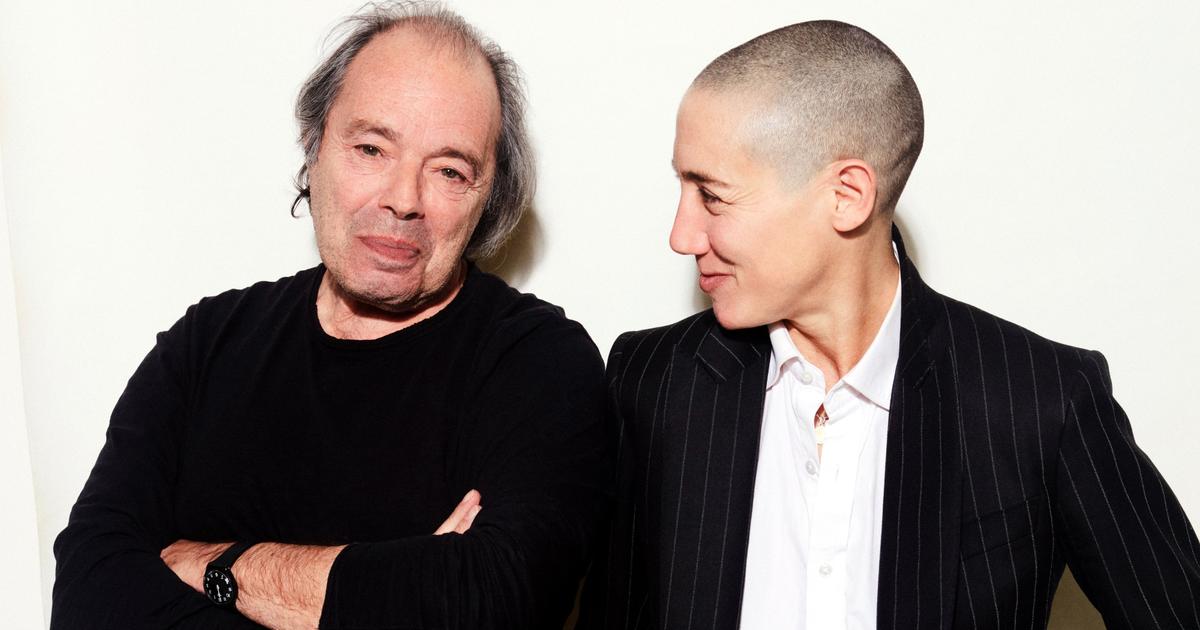


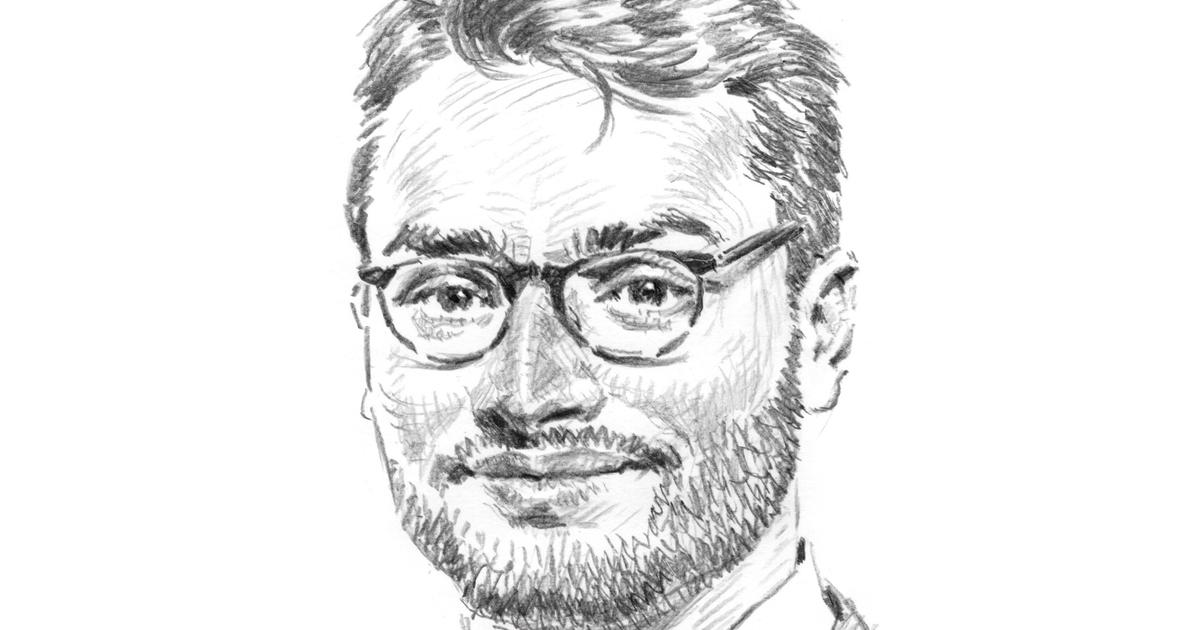
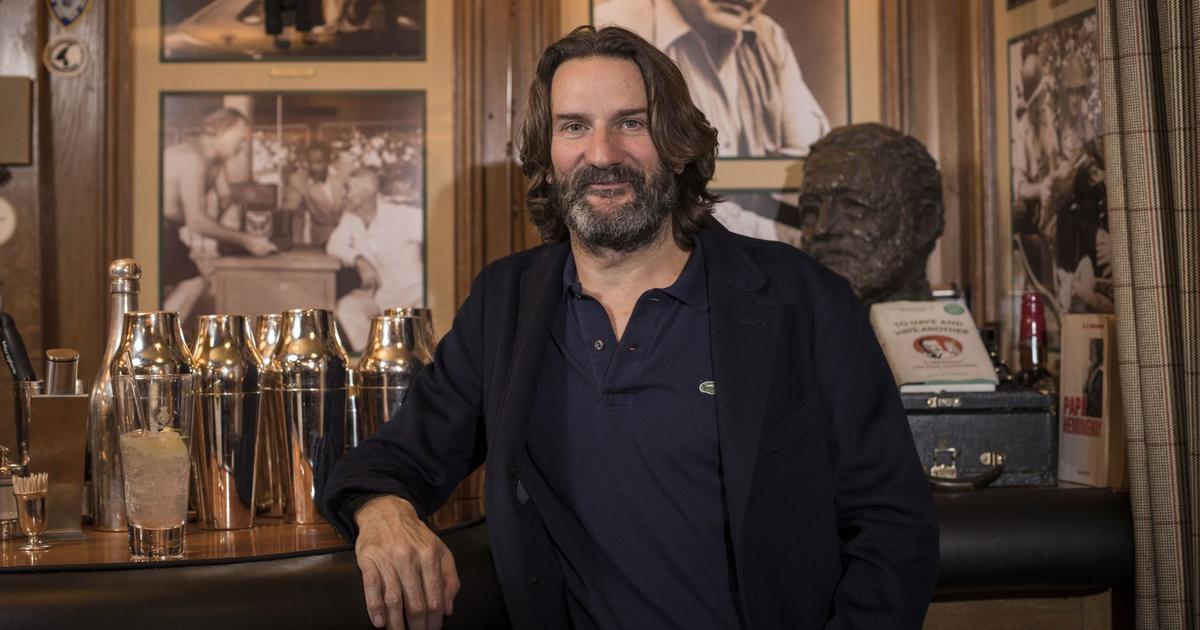
/cloudfront-eu-central-1.images.arcpublishing.com/prisa/ZHBM2UJTXJEMFAJJLPXP2OGBRQ.jpg)
